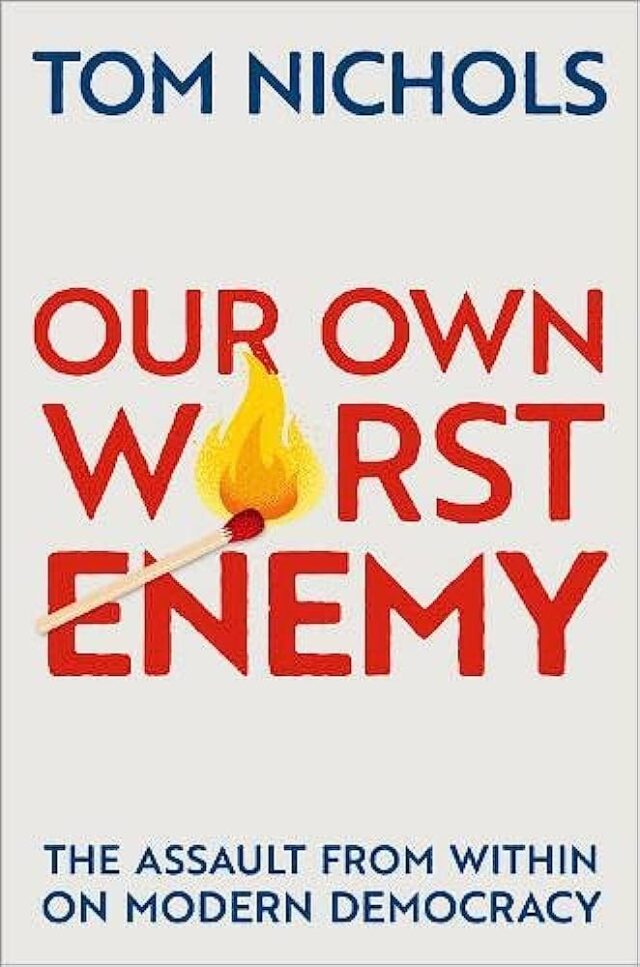“Our Own Worst Enemy” by Tom Nichols is a thought-provoking book that delves into the current state of American society and explores how various factors have contributed to the erosion of informed citizenship, the decline of critical thinking, and the rise of tribalism.
Nichols argues that the United States is facing a crisis of intellectual and civic engagement, as individuals increasingly prioritize personal biases and emotions over facts and rational discourse. He asserts that this decline in intellectual rigor has severe consequences for democracy, as citizens become susceptible to misinformation, manipulation, and demagoguery.
The book delves into several key themes, including the impact of social media and technology on public discourse, the erosion of trust in institutions and experts, and the dangers of political polarization. Nichols draws upon his expertise as a professor and national security expert to analyze these issues and provide a nuanced understanding of their implications for American society.
In “Our Own Worst Enemy,” Nichols emphasizes the importance of reclaiming intellectual humility, promoting intellectual curiosity, and fostering a culture of civil and respectful dialogue. He highlights the need for citizens to be actively engaged in seeking out reliable sources of information, challenging their own biases, and embracing the complexity and uncertainty inherent in many societal issues.
Throughout the book, Nichols offers concrete suggestions for how individuals, educators, and policymakers can work towards rebuilding a culture of informed citizenship. He calls for the revitalization of education systems to prioritize critical thinking and media literacy, the re-establishment of trust in experts and institutions, and the rejection of tribalistic ideologies that hinder constructive dialogue.
“Our Own Worst Enemy” serves as a wake-up call for readers, urging them to confront their own intellectual vulnerabilities and actively participate in the restoration of a healthier public discourse. Nichols argues that only through a collective effort to overcome cognitive biases, engage in respectful debate, and promote intellectual rigor can Americans confront the challenges facing their democracy and forge a path towards a more informed and inclusive society.
Overall, “Our Own Worst Enemy” presents a compelling analysis of the current state of American society, offering valuable insights and practical solutions for rebuilding a culture of informed citizenship and intellectual engagement. It is a must-read for anyone concerned about the future of democracy and the role of individuals in shaping a better society.











